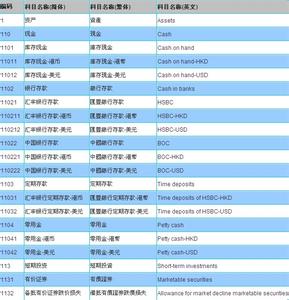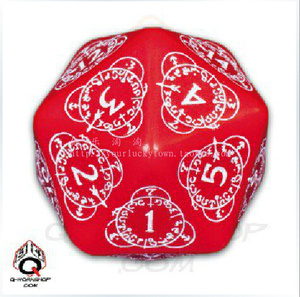一、说明信(cover letter)
一封介绍性的信笺,介绍你自己以及你应征的目的,并有机会在其中概述你的技能和你能为公司做出的贡献,大多数公司除了要履历之外还要求附上一封说明信。(an introductory letter which introduces yourself,states your intent,and gives you an opportunity to summarize your skills and sell what you can offer to a company. most companies require a cover letter in addition to a resume.)主要包括三部分:开场白(anfang)、自我介绍(selbstvorstellung)和结束语(schluss)。
二、简历(resume)
一个正规的个人鉴定,描绘出专业目标、工作经历和教育背景以及与某专业相关的其他的活动,或参加的专业组织,等等。这是一种向一个可能成为你老板的人推销你技能和专业技巧的手段。(a formal document which identifies a person,outlines professional goals,describes work history and educational background,and identifies other activities,memberships in professional associations,etc.,which are relevant to a career. it is a tool by which you market or sell your skills and expertise to a potential employer.)
英文简历与中文简历内容相似,主要包括:
(一)求职目标(goals):
一份描述你专业抱负或是职业目标的陈述报告。(a statement which expresses your professional ambitions and/or career objectives.)包括:目标(objective)、工作目标(job objective)、职业目标(career objective)、谋求职位(position sought)、希望职位(position wanted)、申请职位(position applied for)等。
(二)个人资料(personal data):
主要是介绍你自己(introduce yourself),包括个人的一些自然状况:姓名(name)、年龄(age)、出生日期(date of birth)、住宅电话(home phone)办公电话(office phone)、民族,国籍(nationality)、籍贯(native place)、家庭状况(family status)、婚姻状况(marital status)等。
(三)应聘的资格(qualifications):
在何种程度上,教育背景及工作背景适合从事某一工作。(the degree and/or depth to which a person’s work and educational background is a good fit for a particular job.)如:
1.教育背景(educational background):
即正规学校教育/或培训(a history of a person’s formal schooling and/or training.)包括:学历(educational history )、教育程度(educational background)、知识背景(knowledge background )、所学课程(courses taken)、专业课程(specialized courses)、进修课程(refresher course)、脱产培训(off-job training)计算机科学(computer science)等,及掌握情况。
2.工作背景(work background):
即专职及兼职工作经历。(a history of a person’s professional and/or non-professional employment. )包括:工作经历(work experience)、职业经历(professional history)、具体经历(specific experience)、兼职(part—time)、实习(intern)、实际业绩(performance)、工作成就(achievements)、个人能力(people)、市场开发(marketing develop)、关键问题的解决(breakthrough)、成功的要素(element of success)、胜任力(competence)、被认命的职位(appointed position )等。
3.实力/优势(strengths)
你擅长的工作,你所拥有的积极的个性特点,你想向你未来老板推销的你的一些技能。实力包括较强的思想交流能力、分析能力、技术能力、管理能力、创造力、团结力和可取的个人品质。(tasks which you feel you excel at,positive personality traits that you feel that you possess,and skills that you sell to a potential employer. strengths can include superior communication skills,high analytical ability,technical skills,managerial prowess,creativity,people skills,and desirable personality traits.)例如:
简历主要内容的中英文对照_中英文简历
良好的沟通能力(good communication skill)
敏锐的商业头脑(sharp business mind)
决策及信息高度透明(transparency)
能当机立断(i’m willing to make decisions.)
我和他人容易共事。(i work well with others.)
我能有效进行时间管理。(i can organize my time efficiently.)
(四)弱点(weaknesses)
你认为你自身需要改进的地方,无论是工作习惯,还是专业知识,或是交流能力,等等。任何一个潜在的弱点必须附有能使之转变为一种潜在能力的积极有效的方法。(areas that you perceive that you need improvement in,whether it be work habits,business knowledge,communication,etc. any potential weakness must be spun into a positive answer which converts it into a potential strength.)例如:
我有时对自己要求过于严格。(i tend to drive myself too hard.)
我对别人的能力期望过高。(i expect others to perform beyond their capacities.)
我喜欢速战速决。(i like to see a job done quickly.)
(五)业余爱好(hobbies):
爱好代表一个人的性格、涵养、为人以及品德,爱好广泛的人往往比较开朗、合群、思维宽阔。例如:
弹吉他(play the guitar)、阅读(reading)、话剧(play)、慢跑(jogging)、
长跑(long distance running)、集邮(collecting stamps)、打桥牌(play bridge)、打网球(play tennis)、下棋(play chess)、旅游(traveling)、缝纫(sewing)、听交响乐(listening to symphony)、搞泥塑(do some clay scultures)
(六)离职原因:

最重要的是:应聘者要使招聘单位相信,应聘者在过往单位的离职原因是某些良好的愿望,避免把离职原因说得太详细、太具体;不能掺杂主观的负面感受;不能涉及自己负面的人格特征;尽量使解释的理由为应聘者个人形象添彩。例如:
为更专门的工作(for more specialized work)
为晋升的前途(for prospects of promotion)
为更高层次的工作责任(for higher responsibility)
为扩大工作经验(for wider experience)
由于公司倒闭(due to close-down of company)
由于雇用期满(due to expiry of employment)
(七)薪酬奖金
应聘之前应该做到对相关行业及相关职业的薪酬有个大致了解,同时最好先能确定一下自己的底线,但除金钱外,应聘者还应该将该单位的员工福利如假期,发展空间,行业前景等因素考虑进去,这样作决定时才能不目光短浅,才能符合自己事业发展的整体规划。如:基薪(base salary)、全面薪酬(total compensation)、年度奖金(annual bonus)、业绩奖金(performance units)、红利(benefits)、津贴(perquisites)、特殊津贴(perquisites)、业绩股份(performance shares)等。
 爱华网
爱华网



